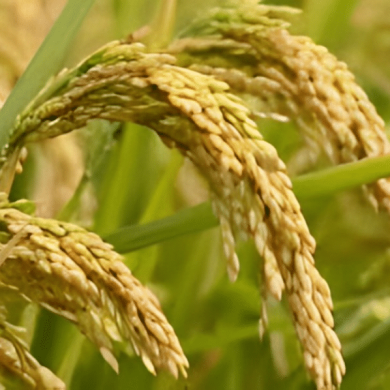The Role of Solar Power in Modern Nigerian Agriculture

The Role of Solar Power in Modern Nigerian Agriculture. Agriculture is the backbone of Nigeria’s economy, employing a significant portion of the population and contributing substantially to GDP. However, traditional farming practices face challenges such as inconsistent power supply, high energy costs, and climate change impacts. Solar power offers sustainable and affordable solutions to transform Nigerian agriculture. This blog explores how solar power is revolutionizing farming in Nigeria, focusing on solar-powered irrigation systems, solar water pumps, solar-powered cold storage, and other innovative applications.
Benefits of Solar Energy for Nigerian Farmers
Switching to solar energy provides numerous advantages for Nigerian farmers:
- Cost Efficiency: Solar energy reduces reliance on expensive diesel generators and unstable electricity grids.
- Sustainability: Solar is a renewable energy source that minimizes carbon emissions.
- Increased Productivity: Reliable power for irrigation, storage, and machinery boosts yields and income.
- Energy Independence: Rural farmers can access power without depending on erratic public supply.
Solar-Powered Irrigation Systems in Nigeria
Irrigation is essential for consistent crop production, yet many Nigerian farmers rely on rainfall or fuel-based systems. Solar-powered irrigation systems offer a game-changing alternative:
- Reliable Water Supply: Solar energy drives pumps that deliver water efficiently, even in remote areas.
- Lower Operating Costs: Once installed, solar-powered systems have minimal maintenance costs compared to diesel.
- Enhanced Productivity: Farmers can cultivate year-round without worrying about dry seasons.
Example: In northern Nigeria, several farmers have adopted solar irrigation systems, increasing their yields by 40%.
Solar Water Pumps for Farms in Nigeria
Solar water pumps are an integral component of modern irrigation systems. They harness sunlight to pump water for various agricultural needs, including:
- Drip Irrigation: Ensures water reaches plant roots efficiently.
- Livestock Watering: Provides consistent water supply for animals.
- Aquaculture: Powers water circulation systems for fish farming.
Key Benefits:
- Easy installation and scalability.
- Operates even in areas with no grid electricity.
- Low long-term operational costs.
Affordable Solar Solutions for Agriculture in Nigeria
Access to affordable solar technology is crucial for widespread adoption. Several initiatives are bridging the gap:
- Subsidized Solar Panels: Partnerships between the government and private sector reduce costs for farmers.
- Pay-As-You-Go Models: Enables farmers to pay in installments, making solar systems more accessible.
- Solar Leasing Programs: Farmers can lease solar equipment instead of purchasing outright.
Solar-Powered Cold Storage for Nigerian Agriculture
Post-harvest losses remain a significant issue in Nigeria, with farmers losing up to 40% of produce due to lack of proper storage. Solar-powered cold storage units address this problem by:
- Preserving Freshness: Ensures fruits, vegetables, and dairy products stay fresh longer.
- Reducing Waste: Extends the shelf life of perishable goods.
- Improving Market Access: Farmers can store surplus produce and sell when prices are favorable.
Example: A cooperative in Kaduna state implemented solar cold storage, cutting post-harvest losses by 30%.
Renewable Energy in Nigerian Farming Practices
Beyond irrigation and storage, renewable energy supports various farming activities, including:
- Processing: Solar energy powers grinding mills, rice hullers, and other machinery.
- Lighting: Illuminates farmhouses and facilities, improving security and working conditions.
- Heating: Provides sustainable energy for greenhouse farming.
Cost of Solar Panels for Farms in Nigeria
The upfront cost of solar panels can be a deterrent for small-scale farmers. However:
- Average Cost: Basic systems start at NGN 100,000, with larger setups costing up to NGN 1,000,000.
- Return on Investment: Farmers recover costs within 2-5 years through savings on fuel and electricity bills.
- Government Subsidies: Reduce initial costs significantly (more on this below).
Government Incentives for Solar Farming in Nigeria
To encourage the adoption of solar technology, the Nigerian government offers several incentives:
- Grants and Subsidies: Covers a portion of the installation cost for rural farmers.
- Tax Breaks: Import duties on solar equipment are often waived or reduced.
- Training Programs: Educates farmers on how to use and maintain solar systems.
Farmers are encouraged to check with local agricultural offices for eligibility and application processes.
Case Studies of Solar-Powered Farms in Nigeria
- Kano State Cooperative: Introduced solar irrigation systems, increasing rice yields by 50%.
- Lagos Tomato Farmer: Installed solar cold storage, reducing spoilage and doubling profits.
- Bauchi Livestock Farm: Used solar pumps for consistent water supply, boosting animal health.
These success stories highlight the transformative potential of solar power in Nigerian agriculture.
Conclusion
Solar power is not just an alternative energy source; it’s a catalyst for modernizing Nigerian agriculture. From irrigation and storage to processing and lighting, solar solutions address critical challenges faced by farmers. With affordable options, government support, and proven success stories, the future of solar farming in Nigeria is bright.
Call to Action: Interested in adopting solar solutions for your farm? Contact us today for affordable packages tailored to your needs!




Add comment
You must be logged in to post a comment.